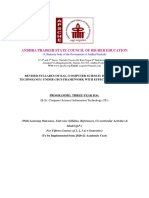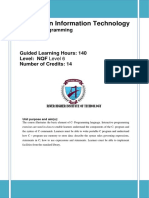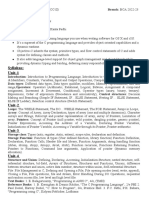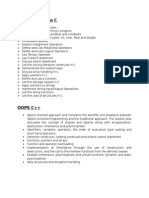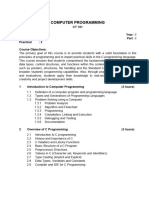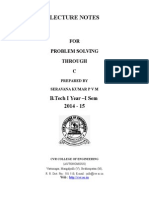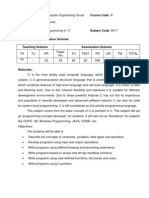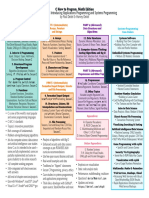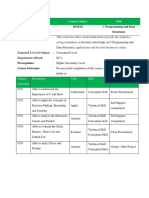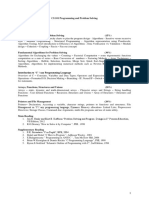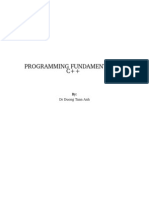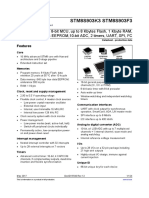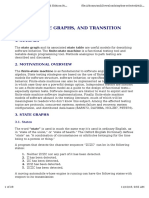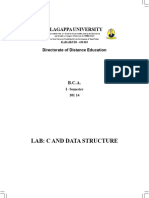0% found this document useful (0 votes)
29 views3 pagesCourse Plan
The Computer Programming course introduces programming with C and object-oriented programming concepts using C++. It covers fundamental programming structures, control flow, functions, arrays, pointers, and OOP principles such as classes and inheritance. The course includes assessments through weekly assignments, a midterm exam, and a final exam, along with project development and presentations.
Uploaded by
Sajid HussainCopyright
© © All Rights Reserved
We take content rights seriously. If you suspect this is your content, claim it here.
Available Formats
Download as PDF, TXT or read online on Scribd
0% found this document useful (0 votes)
29 views3 pagesCourse Plan
The Computer Programming course introduces programming with C and object-oriented programming concepts using C++. It covers fundamental programming structures, control flow, functions, arrays, pointers, and OOP principles such as classes and inheritance. The course includes assessments through weekly assignments, a midterm exam, and a final exam, along with project development and presentations.
Uploaded by
Sajid HussainCopyright
© © All Rights Reserved
We take content rights seriously. If you suspect this is your content, claim it here.
Available Formats
Download as PDF, TXT or read online on Scribd
/ 3













